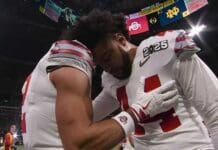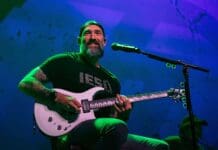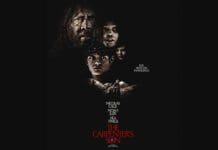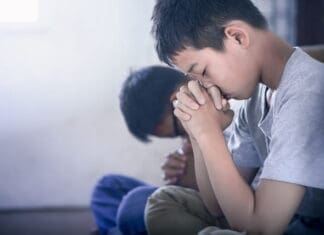Former President Jimmy Carter identifies as an evangelical Christian, a fact he’s proud of. Growing up in a Baptist church in Plains, Georgia, Jimmy Carter’s faith has seen him through tumultuous times and weighty responsibilities—both inside and outside the church. Despite the bad rap the word evangelical has received recently and the bitter tensions that are dividing many in the evangelical church, it’s clear Carter is hopeful about the future of the Church.
The former President graciously agreed to talk to ChurchLeaders and answer a few questions about his faith, which is the topic of his latest book, Faith: A Journey for All. In it, Carter discusses the various types of faith that carry us through life, inform our beliefs, and compel our actions.
It was my privilege to meet up with former President Carter at the Carter Presidential Center in Atlanta, Georgia.
Maina Mwaura: You write, “The issue of faith arises in almost every area of human existence…so it’s important to understand its multiple meanings.” What does faith mean to you?
Jimmy Carter: Faith has multiple meanings. It has a religious meaning—in fact, I wrote about that in a book called “Living Faith”…Keeping faith means you keep faith with people who have confidence in you…I wrote a book about that, too. [smiling] Keeping faith and living faith are two different aspects. But we have faith in ourselves, we have faith in our parents, we have faith in the basic principles that guide us, religious faith, of course, is the main thing. But we have faith in freedom, faith in democracy, faith in the efficacy of education, faith in telling the truth and so forth…We have faith in the equality of human beings, most of us do. Of course, that’s been a challenge down through history for America and for other countries…We have faith in the benefits of peace and human rights. So, if we believe in any of those things, we experience faith, whether we realize it or not.
MM: How did your faith get you through losing the election?
JC: I became pretty quickly reconciled to that. One of the main reasons I got over it is because I had to convince my wife everything was ok [smiling]…We’ve had an extraordinarily wonderful time since I left the White House, which wouldn’t have been possible had I had another term. I think the work with the Carter Center and work for Habitat for Humanity and so forth, and our life with our family growing up and becoming close to us—all those things would have been impossible to some degree had I had another term. I wanted another term; I think I could have done good with another term, but I got over it fairly quickly. I haven’t missed it since.
MM: In your book you say, “We need to have something unshakable in which to have faith.” Do you think Americans are losing their faith?
JC: I think Americans and people across the world have lost faith in a lot of things. We’ve lost faith in the equality of human beings in the eyes of God, and that’s been one of the things that has shaken the world. More recently with immigrants in almost all nations—particularly in the European area. In this country, we’ve lost faith in the equality of people in the eyes of God, between African Americans and white Americans. We’ve struggled with that over a period of two centuries now. And we’re still struggling with it.
We have faith, I believe, in the integrity and the wisdom of our constitutional principles. They vary a little bit from time to time because of interpretation of Supreme Court justices, but they’re basically intact. And we have faith in ourselves. We have faith in other human beings…What Jesus teaches us is to have faith in people who are different from us, and to love even our enemies…So that’s the future for the human race, I think, with the threat of nuclear weapons and that sort of thing. We just need to live and learn to get along with one another in peace and not warfare with people with whom we have a difference of opinion.
MM: You consider yourself an evangelical. The word has taken a beating over the last couple of years. How can evangelicals do a better job showing their faith to the world?
JC: I do [consider myself an evangelical]. Evangelicals to me are people who have faith in God and Jesus Christ and who want to spread that faith to other people through our human actions and through our words…During the time I was president, as a matter of fact, we had a movement of evangelicals, right-wing Christians, toward the Republican party. So then, it’s become a partisan divide. And there were some principles that divided us.














